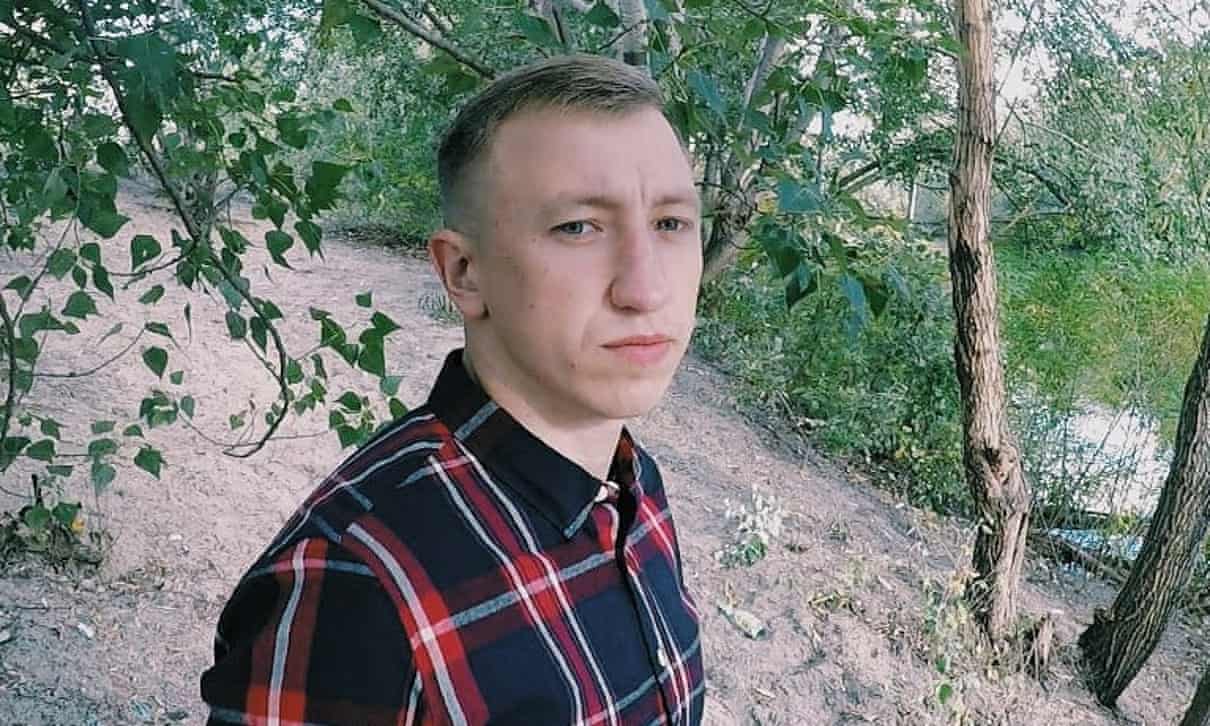Belarus exile group leader Vitaly Shishov found dead in Kyiv, police say
Police open murder investigation after activist discovered in park after failing to return from a run.
The head of a Kyiv-based non-profit organisation that helps Belarusians fleeing persecution has been found dead in a park in the Ukrainian capital, police have said, raising suspicion that he may have been murdered.
Vitaly Shishov, the head of Belarusian House in Ukraine (BDU), was reported missing by his partner on Monday after he failed to return from a run and could not be reached on his mobile phone.
“Belarusian citizen Vitaly Shishov, who had gone missing in Kyiv yesterday, was today found hanged in one of the Kyiv parks, not far from where he lived,” police said in a statement, adding that they had opened a murder investigation and would pursue all leads, including a possible “murder disguised as a suicide”.
Friends and colleagues suspect Shishov was targeted for his opposition to the government of Alexander Lukashenko, which has launched a broad crackdown on the opposition in Belarus and begun a campaign to hunt down its members abroad.
“There is no doubt that this was a planned operation by the [security services] to liquidate a Belarusian dangerous to the regime,” wrote his organisation BDU in a statement. “We will continue to seek the truth in Vitaly’s death!” BDU has called on supporters to rally outside the Belarusian embassy on Tuesday evening.
Shishov had recently complained about being followed by strangers while jogging, the human rights organisation Viasna said on Telegram. “Vitaly was being followed,” BDU wrote, adding it had been warned that its members could be kidnapped or murdered.
Shishov fled Belarus last year after protests erupted against Lukashenko over disputed presidential elections. Lukashenko’s main rivals have been imprisoned or have fled, while thousands of protesters have been arrested. Many said they have been tortured by their guards in jail.
In Kyiv, Shishov helped fleeing Belarusians, who would often move to the Ukrainian capital or continue to other safe havens for dissidents in Poland or Lithuania.
Shishkov also organised protests against Lukashenko’s regime, including one last week to mark the 31st anniversary of Belarus’s independence from the Soviet Union. According to his recent Facebook posts, he had collected money to restore a statue to Belarusians who had died during the 2014 Euromaidan revolution and fighting against Russian-backed forces in eastern Ukraine.
“Devastated by the news of the death of the Belarusian activist,” wrote Sviatlana Tsikhanouskaya, the opposition leader now in exile. She met the British prime minister, Boris Johnson, on Tuesday as she called for tougher international sanctions on Belarus. “It is worrying that those who flee Belarus still can’t be safe. I’m thankful to authorities for launching an investigation into this case.”
Belarusian authorities have characterised anti-government protesters as criminals or violent revolutionaries backed by the west, describing the actions of law enforcement agencies as adequate and necessary.
If Shishov’s death is declared a murder, it will raise further concerns about Belarus’s targeting of dissidents abroad despite the threat of sanctions from the west.
Lukashenko drew international outrage in May by grounding a Ryanair jet in order to arrest a dissident journalist on board, prompting western countries to sanction dozens of Belarusian officials and sectors of the Belarusian economy. But that appears to have done little to prevent Lukashenko’s crackdown on dissent at home and abroad.
This week a Belarusian athlete, Krystsina Tsimanouskaya, said she was forced to withdraw from the Tokyo Olympics and threatened with forced repatriation for criticising her coaches and the athletics federation on social media. Tsimanouskaya, who has received a humanitarian visa to Poland, has said she fears being jailed if she returns home.
And opposition Belarusians in Russia have said they have been targeted for rendition, in some cases under suspicious circumstances that more closely resemble kidnappings than legal proceedings.
In Kyiv, one dissident Belarusian media manager said he had warned his employees in the capital to stay in groups and avoid walking the streets alone at night. “In Poland, Lithuania and other countries, the Belarusian security services can’t really [act freely], but in Ukraine, they’re definitely there,” he said.
Shishov’s death came as Tsimanouskaya’s husband, Arseniy Zdanevich, told several news outlets that he had fled from Belarus and had arrived in Kyiv shortly before Shishov’s disappearance was announced. Zdanevich said he and his wife were planning to reunite soon.

